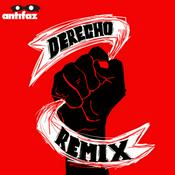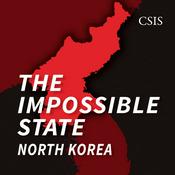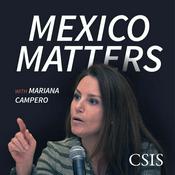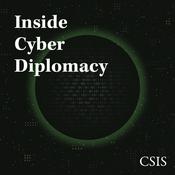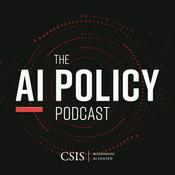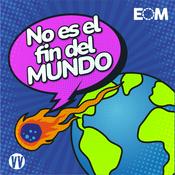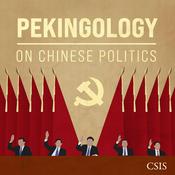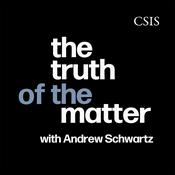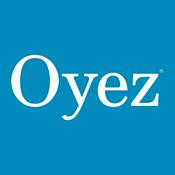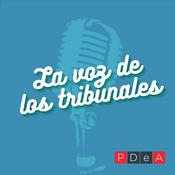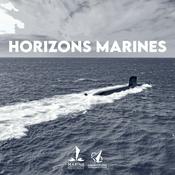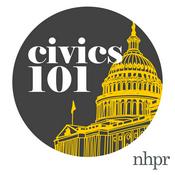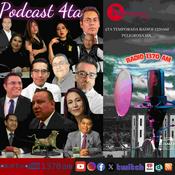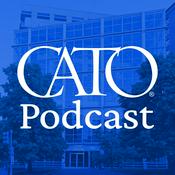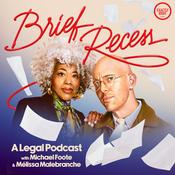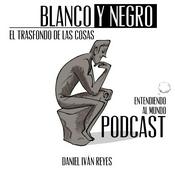55 episodios

After the Flood: Valencia’s Road to Recovery
22/12/2025 | 31 min
Welcome back everybody to the SAIS Review's The Looking Glass Podcast. We are your hosts Duru Dogan and Isabella Manzione. With natural disasters becoming more frequent, resilience and recovery have moved to the center of global conversations on human security. These events have sparked important discussions about community preparedness, government responsibility, and what it truly means to build back better. Today, we’re joined by Dr. Alexander Fekete to explore how the regions affected by the 2024 Spanish floods have navigated their recovery and strengthened their long-term resilience.Dr. Alexander Fekete is a Full Professor at the Cologne University of Applied Sciences, Institute of Rescue Engineering and Civil Protection. His expertise is in Risk Management, Crisis Management, Natural Hazards, Climate Change Impacts, Disaster Preparedness, and Societal Resilience. He has over 250 publications pertaining to these fields. Recently, he co-hosted a webinar on the topic of “Societal resilience and infrastructure – who is forgotten in post-disaster recovery.” We’re very excited to be joined by him today and hope you enjoy today’s episode of the Looking Glass Podcast.Remember to leave 5-stars and share with a friend!

Twin Threats of Extremist Violence and Authoritarianism in the Sahel
18/11/2025 | 30 min
Welcome back to the SAIS Review’s The Looking Glass Podcast. We’re your hosts Aaryaman Shah and Jiwon Lim. On May 15, al-Qaeda affiliated militants claimed to kill 200 soldiers during an attack on an army base in Djibo, a village in northern Burkina Faso. This attack is emblematic of the extent to which violent extremism has found a foothold in the Sahel, a belt of semi-arid land straddling the Sahara and coastal West Africa. There are several reasons for the emergence and sustenance of this extremist violence, including free access to weapons, political instability and longstanding ethnic rivalries. Here to help us make sense of violence in the Sahel is Dr Alexander Thurston. Dr. Alexander Thurston is an Assistant Professor of Political Science at the University of Cincinnati. He is a scholar whose work specializes in the intersection of Islam and politics. Dr. Thurston is the author of a blog, Sawahil, on issues across West Africa, MENA, Islam and Politics. His work has been featured in prominent academic journals, including Journal of the American Academy of Religion, African Affairs, Islamic Law & Society. He has also written reports and articles for the Brookings Institution, the Carnegie Endowment, the Center for Strategic and International Studies, and more. He is also the author of Salafism in Nigeria: Islam, Preaching, and Politics and Boko Haram: The History of an African Jihadist Movement. I hope you enjoy this episode of the looking glass podcast. Hosts: Aaryaman Shah and Jiwon LimProduced by Jiwon LimRemember to leave 5-stars and share with a friend!

Japan’s Iron Lady: Takaichi Sanae
10/11/2025 | 22 min
Last month, Japan set history by electing their first female prime minister: Takaichi Sanae. In this victory, she must be ready to face old and new issues, ranging from domestic political and social instability to international tariffs. To discuss who Takaichi is, her platforms, and how she will navigate the ever changing international field, joining us on the podcast today is Dr. Sheila Smith.Dr. Sheila Smith is the John E. Merow senior fellow for Asia-Pacific studies at the Council on Foreign Relations. She is an expert on Japanese politics and foreign policy, and the author of multiple books including “Japan Rearmed: The Politics of Military Power” and “Japan's New Politics and the U.S.-Japan Alliance”. Dr. Smith is chair of the Japan-U.S. Friendship Commission and the U.S. advisor to the U.S.-Japan Conference on Cultural and Educational Interchange, a bi-national advisory panel of government officials and private-sector members. We hope you enjoy today’s episode of The Looking Glass Podcast.Remember to leave 5-stars and share with a friend!

The GERD Water Dispute and its Impact on Egypt’s Water Security
14/7/2025 | 38 min
Situated at the intersection of the Arab world, Sub-Saharan Africa, and Southern Europe, Egypt remains a pivotal actor in the evolving geopolitics of the Middle East and North Africa. Under the leadership of President Abdel Fattah El-Sisi, the Egyptian state has embarked on a sweeping agenda of transformation—redefining its political economy, reasserting its regional role, and confronting a host of domestic and international pressures.This miniseries aims to move beyond conventional narratives to provide a rigorous, multidisciplinary examination of contemporary Egypt. Through a series of in-depth conversations and analyses, The Looking Glass interrogates the logics, trade-offs, and long-term implications of the choices shaping Egypt’s present and future.In this final episode, we will dive into the dispute over the Grand Ethiopian Renaissance Dam, an Ethiopian megaproject that has upended relations between Egypt and Ethiopia. The Nile River is shared by over 11 countries, and Ethiopia seeks to use its waters to increase its electricity production. While this seeks to improve Ethiopia’s development, Egypt fears it would bring negative consequences down river, including negative impacts to its water supply. We will discuss this issue in debt, as well as Egypt’s water security in general, which has proven to be a key issue in the country.To discuss, we are honored to host Mr. John Mukum Mbaku, Nonresident Senior Fellow at the Brookings Institution, who works on the Africa Growth Initiative.Remember to leave 5-stars and share with a friend!

Istanbul's Next Earthquake
29/5/2025 | 33 min
Welcome back everybody to the SAIS Review’s The Looking Glass Podcast. I am your host Davide Donald. On today’s episode we are going to be talking about disaster management in Turkey. Istanbul lies at the heart of the Eurasian and Anatolian tectonic plate fault lines. The prospect of another major earthquake hitting the city of over 16 million people is a question of when, not if. The 6.2 magnitude earthquake that hit Istanbul a few weeks ago on April 23rd–which luckily resulted in only injuries and minor building damage–was a reminder of just how imminent a major quake could be. To discuss the government’s current preparedness and management approach, and the possible consequences of when an earthquake strikes Istanbul in the future, joining us on the podcast today is Dr. Lisel Hintz.Lisel Hintz is an Assistant Professor of International Relations at the Johns Hopkins School of Advanced International Studies. Her research explores how identity struggles interact with domestic politics and foreign policy, focusing on Turkey and its neighboring regions. Drawing on fieldwork and a diverse range of sources, including pop culture and social media, Dr Hintz brings unique insights into how state-society relations evolve in times of crisis. She is a frequent commentator in outlets like Foreign Policy and The Washington Post, and we are eager to have her join us today to discuss the political and societal dimensions of disaster response in Turkey. We hope you enjoy this episode of the Looking Glass Podcast.Host: Davide DonaldAdditional Editors: Sloan Askins, Sophie Haas-Goldberg, Juliette Legein, Magdalena PaddockRemember to leave 5-stars and share with a friend!
Más podcasts de Gobierno
Podcasts a la moda de Gobierno
Acerca de The Looking Glass
Escucha The Looking Glass, The Langley Files: CIA's Podcast y muchos más podcasts de todo el mundo con la aplicación de radio.net
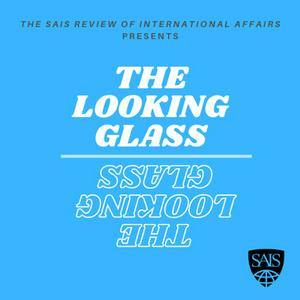
Descarga la app gratuita: radio.net
- Añadir radios y podcasts a favoritos
- Transmisión por Wi-Fi y Bluetooth
- Carplay & Android Auto compatible
- Muchas otras funciones de la app
Descarga la app gratuita: radio.net
- Añadir radios y podcasts a favoritos
- Transmisión por Wi-Fi y Bluetooth
- Carplay & Android Auto compatible
- Muchas otras funciones de la app


The Looking Glass
Descarga la app,
Escucha.


